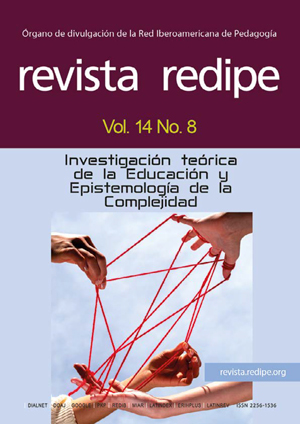Neoliberalism, person, and university: A critical look at their intersections and consequences in higher education
Main Article Content
Keywords
Neoliberalism, Person, University, Academic capitalism, Humanization
Abstract
This article focuses on the critical analysis of neoliberalism and its profound repercussions in contemporary times. The objective is to unravel the configuration of this ideology as an omnipresent logic, its effects on the constitution of the human being, and its transformative impact on the university institution. The methodology employed is based on a critical paradigm, with a hermeneutic approach and a documentary method, through a rigorous bibliographic review. As a main result, it is established that neoliberalism transcends the economic sphere, becoming a totalizing rationality that shapes identities and practices. This has reconfigured the person into a fragmented, competitive, and self-exploiting being, immersed in “neuronal violence.” Concomitantly, the university has been instrumentalized, shifting from its mission of social knowledge to “academic capitalism” that commodifies knowledge. In conclusion, the profound dehumanization of the subject and the instrumentalization of the university by this neoliberal logic underscore the urgency of rethinking the human role and academic praxis in this context.
References
Borrero, A. (2000). Interrogantes sobre la educación en el futuro. En La Primera Asamblea del Área Educativa (p. 36-37).
Borrero, A. (2008). Universidad, sociedad y estado: Una perspectiva desde Colombia. Pontificia Universidad Javeriana.
Brown, W. (2015). Undoing the Demos: Neoliberalism’s Stealth Revolution. Zone Books.
Deleuze, G., & Guattari, F. (2004). Anti-Edipo: Capitalismo y esquizofrenia. Paidós.
Escalante, F. (2016). Historia mínima del neoliberalismo. Madrid: Turner publicaciones S.L.
Fassin, É. (2018). Populismo de izquierdas y neoliberalismo. Traficantes de Sueños.
Gadamer, H-G. (1998). Verdad y método II. Ediciones Sígueme.
Gentili, P. (2001). Universidades en la penumbra: Crisis, ajuste y privatización de la universidad pública. CLACSO.
Giroux, H. A. (2013). Pedagogy of the Oppressed in the Neoliberal Era: Paulo Freire and the Challenge of Public Education. Bloomsbury Academic.
González, A. (2010). Monstruos y quimeras de la razón neoliberal. Anthropos.
Grimson, A. (Comp.). (2007). Cultura y neoliberalismo. CLACSO.
Grondin, J. (2008). ¿Qué es la hermenéutica? Herder.
Han, B-Ch. (2020a). La salvación de lo bello. Herder.
Han, B-Ch. (2020b). En el enjambre. Herder.
Han, B-Ch. (2020c). La sociedad del cansancio. Herder.
Han, B-Ch. (2021). La sociedad paliativa. Herder.
Hayek, F. (1944). Camino de servidumbre. Universidad de Chicago.
Kuhn, T. S. (1962). La estructura de las revoluciones científicas. Fondo de Cultura Económica.
Lazzarato, M. (2013). La fábrica del hombre endeudado: Ensayo sobre la condición neoliberal. Amorrortu.
Marx, K. (1867). El Capital. Crítica de la economía política, tomo I: El proceso de producción del capital. Fondo de Cultura Económica.
Miranda, E., & Ortiz, R. (2007). Los paradigmas de la investigación: un acercamiento teórico para reflexionar desde el campo de la investigación educativa. Cinta de Moebio, (28), 1-13.
Ornelas Delgado, J. (2009). El neoliberalismo: Un proyecto de hegemonía mundial. Itaca.
Ortega y Gasset, J. (1930). Misión de la Universidad. Revista de Occidente.
Piketty, T. (2013). El capital en el siglo XXI. Fondo de Cultura Económica.
Salazar, J. A. (2020). La investigación documental. Ecoe Ediciones.
Saña, H. (2016). La sociedad del cansancio. Reflexiones sobre el capitalismo neoliberal y la crisis de la subjetividad. Herder.
Sousa, B. (2005). La universidad en el siglo XXI. Para una reforma democrática y emancipatoria de la universidad. CIDES, USMA, ASDI y Plural.
Valdecantos, A. (2014). Filosofía del cansancio. Herder.



